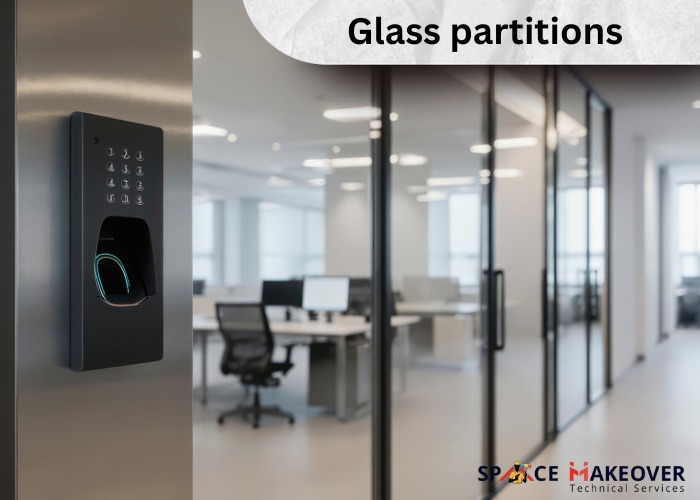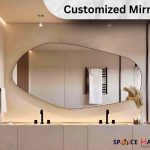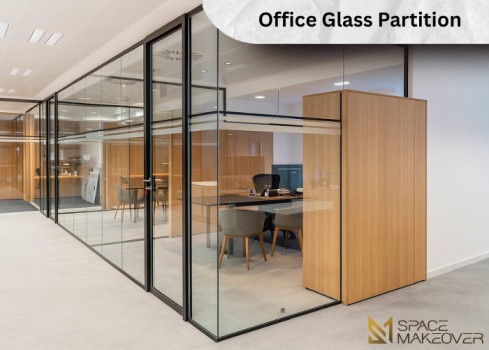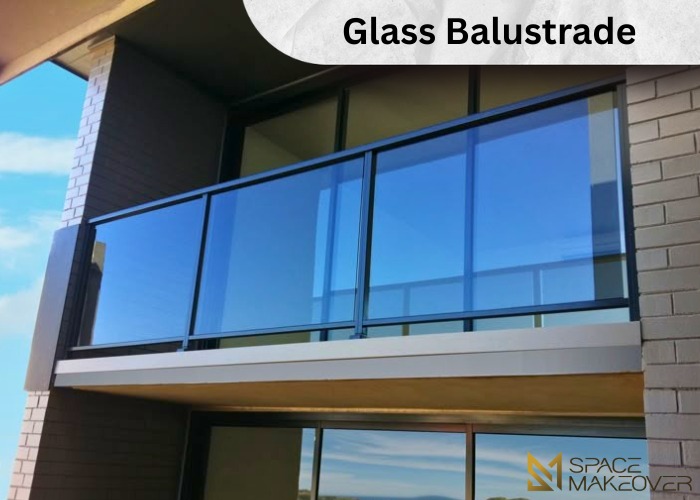Which is better for offices: glass partitions or traditional walls?
Table of Contents
- Why does office design matter?
- Glass partitions: A modern approach
- Traditional walls: A timeless option
- Aesthetics: open vs. solid spaces
- Natural light and transparency
- Privacy and acoustics
- Flexibility and functionality
- Cost considerations
- Maintenance and durability
- Employee productivity and wellbeing
- Energy efficiency and sustainability
- When to choose glass partitions?
- When to choose traditional walls?
- Comparing glass partitions and traditional walls
- Conclusion
Key takeaways
- Glass partitions make contemporary, airy, and open work environments but have less privacy.
- Traditional walls ensure stability, privacy, and sound control but minimize flexibility.
- Expenses vary—glass is more expensive initially but saves in the long run due to flexibility.
- The ideal option depends on office requirements, culture, and future expansion plans.
When designing or remodeling an office, among the largest decisions is choosing between glass partitions or conventional walls. Both have their respective advantages, but they both carry the limitation. The correct decision is based on your business requirements, design objectives, and long-term workspace vision.
However, glass partitions are popular, especially in newer office space planning. They bring light, openness and a smooth professional form. On the other hand, traditional walls remain a reliable and classic choice, offering privacy, sound control and durability.
In this blog, we will compare glass division with traditional walls, highlighting their professionals and opposition. The purpose is to help you choose what your office is best. We hope this will help you determine what would be most suitable for your office. In case you are considering glass partition solutions in Dubai, this article will also let you know when such solutions are best applied.
Why does office design matter?
Office design is not simply aesthetics. It has a direct impact on productivity, employee happiness, and brand reputation. An office should:
- Promote collaboration while still providing privacy.
- Facilitate natural light and ventilation.
- Align with the company’s identity and culture.
- Be flexible for future developments.
Therefore, making the choice between glass partitions and conventional walls is crucial to achieving these goals.
Glass partitions: A modern approach
Glass partitions are load-free walls made from tempered or laminated glass. They assist in separating spaces without obstructing light or visibility. Businesses that want a modern and open environment favor using glass.
Key Advantages:
- Promote natural light flow.
- Offer a sophisticated and professional look.
- Easy to reconfigure and adaptable.
- Enhance collaboration and openness.
Limitations:
- Poor sound insulation.
- Privacy concerns in confidential areas.
- Can be more expensive than plain drywall.
Traditional walls: A timeless option
Traditional walls consist of materials like drywall, brick, or wooden panels. They are durable, flexible, and tough. As opposed to glass partitions, these walls form solid partitions, giving a sense of permanence.
Key Strengths:
- Great sound insulation.
- High confidentiality.
- Strong and durable.
- Can be wallpapered, painted, or textured.
Weaknesses:
- Prevent light from passing through.
- Hard to adjust or move.
- Can give a feeling of a closed and heavy room.
Aesthetics: open vs. solid spaces
- Glass Partitions
They add a modern feel. Glass offices make them look open, light, and airy. Transparent or frosted glass can be applied depending on the intention of how much they want to see there.
- Traditional Walls
They permit infinite design opportunities with paint, patterns, or finishes. They create a warm and stable setting, which some companies like more than the “open” sensation.
Natural light and transparency
- Glass Partitions
One of the best advantages is transmission of light. Natural light reduces artificial lighting use, saves energy costs, and improves mood among employees.
- Traditional Walls
They block sunlight completely, usually resulting in darker rooms. More light is needed, which increases energy use and cost.
Privacy and acoustics
Privacy is often the determining factor.
- Glass partitions: Sound insulation is not optimal even when using frosted glass. Conversations can travel, so less ideal for confidential discussions.
- Traditional walls: Excellent privacy and noise management. Perfect for HR, finance, or meeting rooms.
Flexibility and functionality
- Glass Partitions
- Easy to install, move, or reconfigure.
- Perfect for growing businesses.
- Can be modular, meaning they can adapt to layout changes quickly.
- Traditional Walls
- Fixed and unmovable.
- To renovate, work in construction is required.
- Optimal for companies that need fixed rooms.
Cost considerations
Glass vs. standard walls prices vary based on material, installation, and design.
- Glass partitions may cost more to install but are cheaper in the long run for energy and lighting.
- Traditional walls are cheaper to install but expensive to modify in the future.
Maintenance and durability
- Glass partitions: Easy to clean but may require frequent wiping to remove fingerprints. Quality glass is durable and not easily broken.
- Traditional walls: Stronger against impacts but could require repainting, repair, or patching over time.
Employee productivity and wellbeing
- Natural light partitioning by glass boosts the mood and energy levels.
- Personal spaces created by traditional walls reduce distraction.
Moreover, the best choice depends on if your employees need collaboration or focus.
Energy efficiency and sustainability
- Glass partitions lower lighting costs but could increase cooling requirements in hot climates.
- Traditional walls add insulation but depend on artificial lighting.
When to choose glass partitions?
You should utilize glass partitions if your office places emphasis on:
- Openness and transparency.
- Frequent changes in layout.
- Sophisticated and modern atmosphere.
- Enhanced use of natural light.
Furthermore, offices utilizing office glass partition in Dubai prefer them because they have a minimalist look and can light up offices.
When to choose traditional walls?
Classic walls are best if your office requires:
- Complete privacy.
- Heavy soundproofing.
- Static divisions.
- A homely, stable, or corporate look.
Comparing glass partitions and traditional walls
Here’s a simple comparison to help you decide:
| Feature | Glass Partitions | Traditional Walls |
| Aesthetics | Modern and sleek | Classic and stable |
| Natural Light | Excellent | Blocks light |
| Privacy | Moderate | High |
| Sound Insulation | Limited | Strong |
| Flexibility | Easy to reconfigure | Hard to modify |
| Cost | Higher upfront | Lower upfront |
| Maintenance | Easy to clean | Needs repaint/repair |
Conclusion
Both glass partitions and conventional walls have special advantages for an office. If you desire flexibility, transparency and contemporary form, the glass is the future. But if you need privacy, soundproofing and durability, traditional walls are the best.
Finally, the appropriate option is based on the culture, operation and long-term objectives of your business. Companies that want a compromise combine both solutions, employing glass for open spaces and ordinary walls for secluded areas.
However, if you are considering glass partition services in Dubai, determine whether they complement your office’s vision. Just like that, individuals who are looking for an office glass partition in Dubai should consider functionality, expense, and future flexibility. A well-designed workspace creates not just a place to work, but an environment that inspires growth, collaboration, and productivity.






